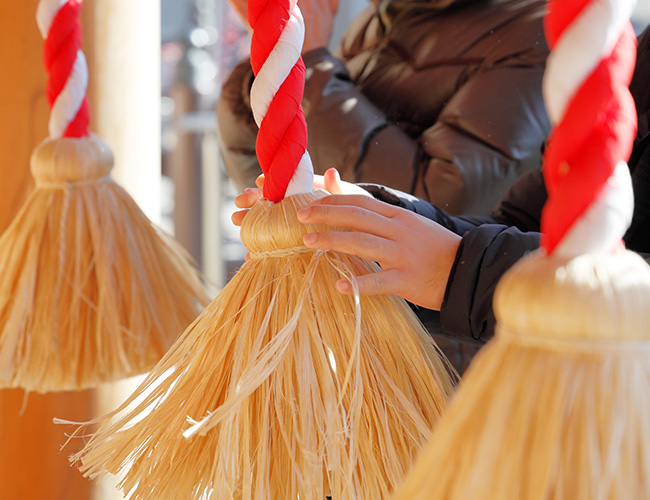BRAND

The origin of the word TASSEL
It is said that "Tasseau" is based on the Latin word "tassa", and it is translated as "panther", which is a tie that is bundled with strings such as ancient costumes. (It is a hook nowadays.) The shape is as if it was a metaphor for "corn tuft", and it is described as a bunch of bundles by assembling it with thread or string.

BRAND PHILOSOPHY
BRAND
【 Tuft ornaments in Japanese Customs 】
In the late 6th century, the Japanese tussor was excavated from Fujinoki Tomb (Nara) as a buried funeral gift.
In ancient customs, there are many cases where it was used as etiquette decoration and festival goods, but it is also thought that it is a model that praises the meaning of "marks" to harmonize life and cure excessive greed and disaster.
Eventually, with the rise of the townspeople's culture, it became used habitually as daily necessities of ordinary people and it reached the present age.
In familiar things, there are tufts on the ends of folding fans, beads and cushions, and it is characteristic that not only decorations but also the meanings of "hospitality", "respect" and "knot" unique to Japan are related.
In Kyoto, it has been handed down as a traditional craft as "Kyobo string", "Shikari string", and "Knot string".

Tassels mean decorative tufts.
There are various types in many cultures around the world, and in Japan, it was excavated as a buried funeral ceremonial gifts in the Kofun period.

It has been handed down as a traditional craft in Kyoto over time, and it is also used for temple and shrine bamboo blind, beads, amulets, fans and cushions, and can still be seen here and there in the city.

The connection of the knot and tufts are somehow filled with meanings in Kyoto, such as civility and auspiciousness, and the decorative chambers have become a part of everyday life that expresses the heart of hospitality.

We liken the thought to the word TASSEL, and we will deliver a richer stay as a hotel that bundles people, towns and cultures with the various styles of guests.




